Biography
Willie Hugh Nelson (/wɪli nɛlsən/; born April 29, 1933) is an American singer-songwriter, musician, guitarist, author, poet, actor, and activist. The critical success of the album Shotgun Willie (1973), combined with the critical and commercial success of Red Headed Stranger (1975) and Stardust (1978), made Nelson one of the most recognized artists in country music. He was one of the main figures of outlaw country, a subgenre of country music that developed in the late 1960s as a reaction to the conservative restrictions of the Nashville sound. Nelson has acted in over 30 films, co-authored several books, and has been involved in activism for the use of biofuels and the legalization of marijuana.
Born during the Great Depression, and raised by his grandparents, Nelson wrote his first song at age seven and joined his first band at ten. During high school, he toured locally with the Bohemian Polka as their lead singer and guitar player. After graduating from high school, in 1950, he joined the Air Force but was later discharged due to back problems. After his return, Nelson attended Baylor University for two years but dropped out because he was succeeding in music. During this time, he worked as a disc jockey in Texas radio stations and a singer in honky tonks. Nelson moved to Vancouver, Washington, where he wrote "Family Bible" and recorded the song "Lumberjack" in 1956. In 1958, he moved to Houston, Texas after signing a contract with D Records. He sang at the Esquire Ballroom weekly and he worked as a disk jockey. During that time, he wrote songs that would become country standards, including "Funny How Time Slips Away", "Hello Walls", "Pretty Paper", and "Crazy". In 1960 he moved to Nashville, Tennessee, and later signed a publishing contract with Pamper Music which allowed him to join Ray Price's band as a bassist. In 1962, he recorded his first album, ...And Then I Wrote. Due to this success, Nelson signed in 1964 with RCA Victor and joined the Grand Ole Opry the following year. After mid-chart hits in the late 1960s and the early 1970s, Nelson retired in 1972 and moved to Austin, Texas. The rise of the popularity of hippie music in Austin motivated Nelson to return from retirement, performing frequently at the Armadillo World Headquarters.
In 1973, after signing with Atlantic Records, Nelson turned to outlaw country, including albums such as Shotgun Willie and Phases and Stages. In 1975, he switched to Columbia Records, where he recorded the critically acclaimed album, Red Headed Stranger. The same year, he recorded another outlaw country album, Wanted! The Outlaws, along with Waylon Jennings, Jessi Colter, and Tompall Glaser. During the mid-1980s, while creating hit albums like Honeysuckle Rose and recording hit songs like "On the Road Again", "To All the Girls I've Loved Before", and "Pancho & Lefty", he joined the country supergroup The Highwaymen, along with fellow singers Johnny Cash, Waylon Jennings, and Kris Kristofferson.
In 1990, Nelson's assets were seized by the Internal Revenue Service, which claimed that he owed US $32,000,000. The difficulty of paying his outstanding debt was aggravated by weak investments he had made during the 1980s. In 1991, Nelson released The IRS Tapes: Who'll Buy My Memories? in 1992, the profits of the double album, destined to the IRS, and the auction of Nelson's assets cleared his debt.
During the 1990s and 2000s, Nelson continued touring extensively, and released albums every year. Reviews ranged from positive to mixed. He explored genres such as reggae, blues, jazz, and folk. Nelson made his first movie appearance in the 1979 film The Electric Horseman, followed by other appearances in movies and on television.
Nelson is a major liberal activist and the co-chair of the advisory board of the National Organization for the Reform of Marijuana Laws, which is in favor of marijuana legalization. On the environmental front, Nelson owns the bio-diesel brand Willie Nelson Biodiesel, which is made from vegetable oil. Nelson is also the honorary chairman of the Advisory Board of the Texas Music Project, the official music charity of the state of Texas.
Contents 1 Early life 2 Music career 2.1 Beginnings (1956–1971) 2.2 Outlaw country and success (1972–1989) 2.3 IRS and later career (1990–present) 3 Other ventures 4 Music style 4.1 Guitars 5 Activism 6 Personal life 7 Legacy 8 Discography and other works 9 See also 10 References 10.1 Footnotes 10.2 Sources 11 Further reading 12 External links Early lifeWillie Nelson was born in Abbott, Texas on April 29, 1933, during the Great Depression, to Myrle Marie (née Greenhaw) and Ira Doyle Nelson. He was born on April 29, 1933, but his birth was recorded by doctor F. D. Sims on April 30. He was named Willie by his cousin Mildred, who also chose Hugh as his middle name, in honor of her recently deceased younger brother. Nelson's ancestry includes English, Irish, and Cherokee. His parents moved from Arkansas in 1929, to look for work. Nelson's grandfather, William, worked as a blacksmith, while his father worked as a mechanic.
A young Nelson poses for a photographHis mother left soon after he was born, and his father remarried and also moved away, leaving Willie and his sister Bobbie to be raised by their grandparents. The Nelsons, who taught singing back in Arkansas, started their grandchildren in music. Nelson's grandfather bought him a guitar when he was six, and taught him a few chords, and with his sister Bobbie, he sang gospel songs in the local church. He wrote his first song at age seven, and when he was nine, played guitar for the local band Bohemian Polka. During the summer, the family picked cotton along with other citizens of Abbott. Nelson disliked picking cotton, so he earned money by singing in dance halls, taverns, and honky tonks from age 13, and continuing through high school. Nelson's musical influences were Hank Williams, Bob Wills, Lefty Frizzell, Ray Price, Ernest Tubb, Hank Snow, Django Reinhardt, Frank Sinatra and Louis Armstrong.
Nelson attended Abbott High School, where he was a halfback on the football team, guard on the basketball team and shortstop in baseball. He also raised pigs for the Future Farmers of America organization. While still at school he sang and played guitar in The Texans, a band formed by his sister's husband, Bud Fletcher. The band played in honky tonks, and also had a Sunday morning spot at KHBR in Hillsboro, Texas. Meanwhile, Nelson had a short stint as a relief phone operator in Abbott, followed by a job as a tree trimmer for the local electrical company, as well as pawn shop employee. After leaving school, in 1950, he joined the United States Air Force for eight to nine months.
Nelson's high school football portrait, c. 1950Upon his return, in 1952, he married Martha Matthews, and from 1954 to 1956 studied agriculture at Baylor University. Nelson joined the Tau Kappa Epsilon fraternity, but dropped out to pursue a career in music. He worked as a bouncer for a nightclub, as a partsman in an autohouse, saddle maker, tree trimmer again and as an oilfield worker. He later joined Johnny Bush's band. Nelson moved with his family to Pleasanton, Texas, where he auditioned for a disc jockey job in KBOP. The owner of the station, Dr. Ben Parker, gave Nelson the job despite his lack of experience working on radio. With the equipment of the station, Nelson made his first two recordings in 1955: "The Storm Has Just Begun" and "When I've Sung My Last Hillbilly Song". He recorded the tracks on used tapes, and sent the demos to the local label SARG Records. SARG rejected the recordings.
Nelson then had stints working for KDNT in Denton, Texas, KCUL and KCNC in Fort Worth, Texas, where he hosted The Western Express, taught Sunday school and he played in nightclubs. He then decided to move to San Diego, California. He was unable to find a job, and decided to go to Portland, Oregon, where his mother lived. Nelson tried to hitchhike, but after nobody picked him up, he slept in a ditch. He then found a nearby railroad yard and boarded a freight train that left him in Eugene. A truck driver then drove Nelson to a bus station and loaned him US$10 for a ticket to reach Portland.
Music career Beginnings (1956–1971)He was soon hired by KVAN in Vancouver, Washington, while he also appeared frequently on a television show. He made his first record in 1956, "No Place For Me", that included Leon Payne's "Lumberjack" on the B-side. The recording failed to succeed. Nelson continued working as a radio announcer and singing in Vancouver clubs. He made several appearances in a Colorado nightclub, later moving to Springfield, Missouri. After failing to land a spot on the Ozark Jubilee, he started to work as a dishwasher. Unhappy with his job, he moved back to Texas. After a short time in Waco, he settled in Fort Worth, and quit the music business for a year. He sold bibles and vacuum cleaners door-to-door, and eventually became a sales manager for the Encyclopedia Americana.
After his son Billy was born in 1958, the family moved to Houston, Texas. On the way, Nelson stopped by the Esquire Ballroom to sell his original songs to house band singer Larry Butler. Butler refused to purchase the song "Mr. Record Man" for US$10, instead giving Nelson a US$50 loan to rent an apartment and a six-night job singing in the club. Nelson rented the apartment near Houston in Pasadena, Texas, where he also worked at the radio station as the sign-on disc jockey. During this time, he recorded two singles for Pappy Daily on D Records "Man With the Blues"/"The Storm Has Just Begun" and "What a Way to Live"/"Misery Mansion". Nelson then was hired by guitar instructor Paul Buskirk to work as an instructor in his school. He sold "Family Bible" to Buskirk for US$50 and "Night Life" for US$150. "Family Bible" turned into a hit for Claude Gray in 1960.
"Hello Walls" Sorry, your browser either has JavaScript disabled or does not have any supported player. You can download the clip or download a player to play the clip in your browser. Written by Willie Nelson, "Hello Walls", was a hit for Faron Young in 1961, and the song that gave Nelson national recognition as a songwriter. He recorded the song for his debut album ... And Then I Wrote. Problems playing this file? See media help.
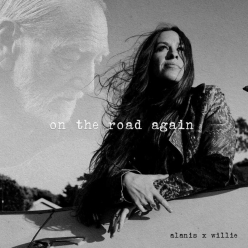
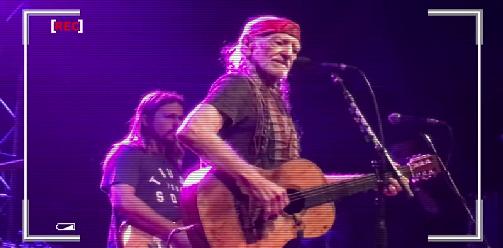
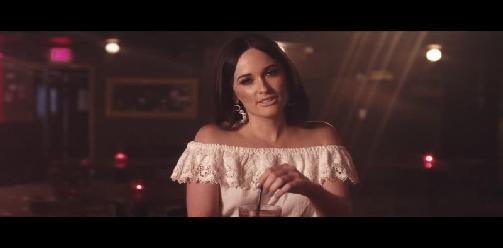
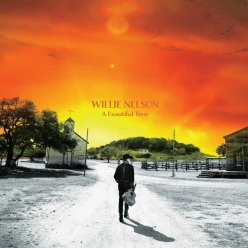
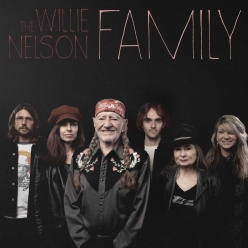
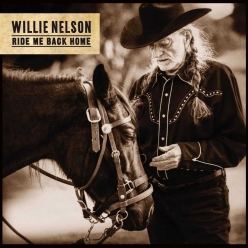
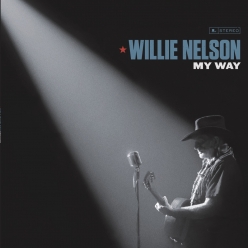
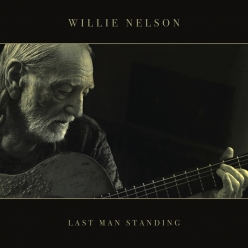


















-1154348631-248x248.jpg)










































